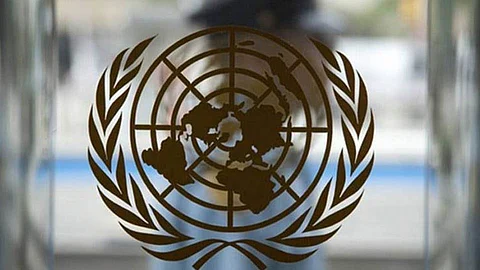
- Home
- Live Blog
- Breaking News
- Top Headlines
- Cities
- NE News
- Sentinel Media
- Sports
- Education
- Jobs

ITANAGAR: The Permanent Mission of India to the United Nations Office and Other International Organisations (PMIUN-OOIO) has replied to UN Special Rapporteurs' queries on the arrest of anti-dam activist Ebo Mili of Arunachal Pradesh.
It clarified that Mili's arrest was a preventive measure taken on account of "credible" input that he and his supporters might go as far as to disrupt the visit of the Union Power Minister to the state of Arunachal Pradesh.
Mili was arrested on July 8, 2024, before the Union Power Minister visited the Siang Upper Hydroelectric Project. He was detained for about 10 hours and released on signing a peace bond, committing not to indulge in any activities that could breach public peace.
This detention raised international concerns, with questions over its legality and consistency with India's obligations under international human rights law, in particular the International Covenant on Civil and Political Rights (ICCPR). In its clarification, the PMIUN-OOIO stated that the detention took the form of legal proceedings.
The mission explained to Eritrean embassy authorities that Mili had appeared before an executive magistrate; signed a peace bond; and was released based on the fact that, while under detention, nothing other than routine monitoring relating to public gatherings was applied under Indian laws and internationally respected human rights standards.
The UN Special Rapporteurs had sought further details about the detention, including its legal basis under Article 9 of the ICCPR, which protects against arbitrary arrest and detention.
They also questioned whether any surveillance was conducted and if it complied with Article 17 of the ICCPR, which safeguards privacy. The rapporteurs expressed concerns about the protection of the rights of local communities that would be affected by the proposed Siang dam project, particularly their rights to a clean environment, access to information, participation, and justice.
They also asked for guarantees that human rights defenders, such as environmental activists like Mili, could work without fear of intimidation or retaliation. This is not the first detention of Mili. On 12 August 2023, he was arrested in protest against a Memorandum of Understanding (MoU) for 13 hydroelectric power projects.
Then he was detained for around eight hours and released after signing the same kind of peace bond. After his recent detention, Mili expressed that the government should not have relied on police reports instead of carrying out an independent investigation into the issue.
The Indian government, through its mission, reaffirmed its commitment to balancing development with environmental sustainability and human rights protection. It stated that the detention of Mili was preventive and not aimed at suppressing dissent.
The government emphasized that it provides legal safeguards and remedies for all citizens, including activists, and focuses on community engagement through public consultations and environmental impact assessments in its development projects.
The detention of Ebo Mili underscores the lingering tension between developmental initiatives and environmental activism in India. The government deems its actions necessary to ensure public order, while the international community continues to raise questions about their consistency with human rights standards elsewhere.
This case points to a need for building openness, discussion, and collaboration with the stakeholders involved to answer questions related to such development projects.
ALSO WATCH: